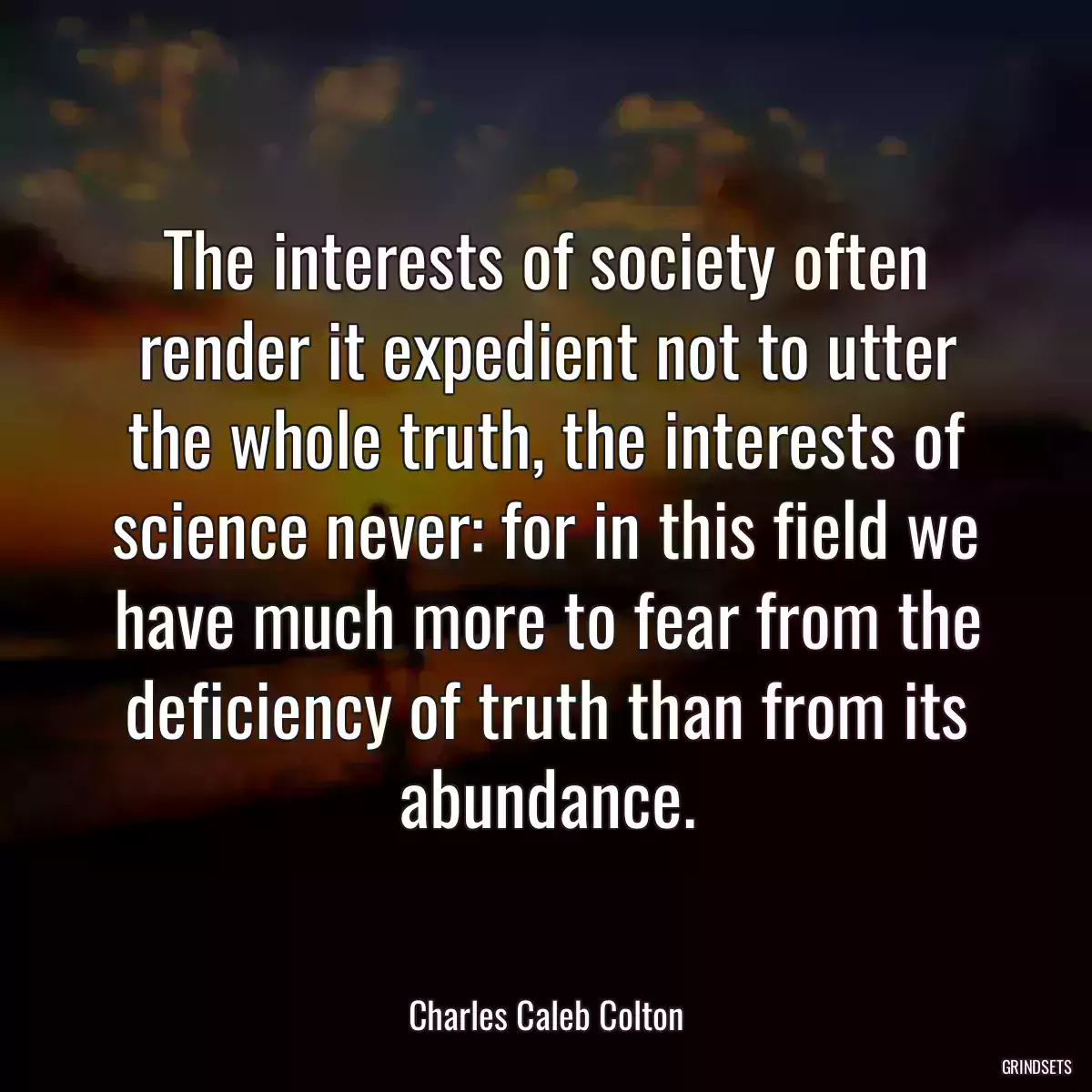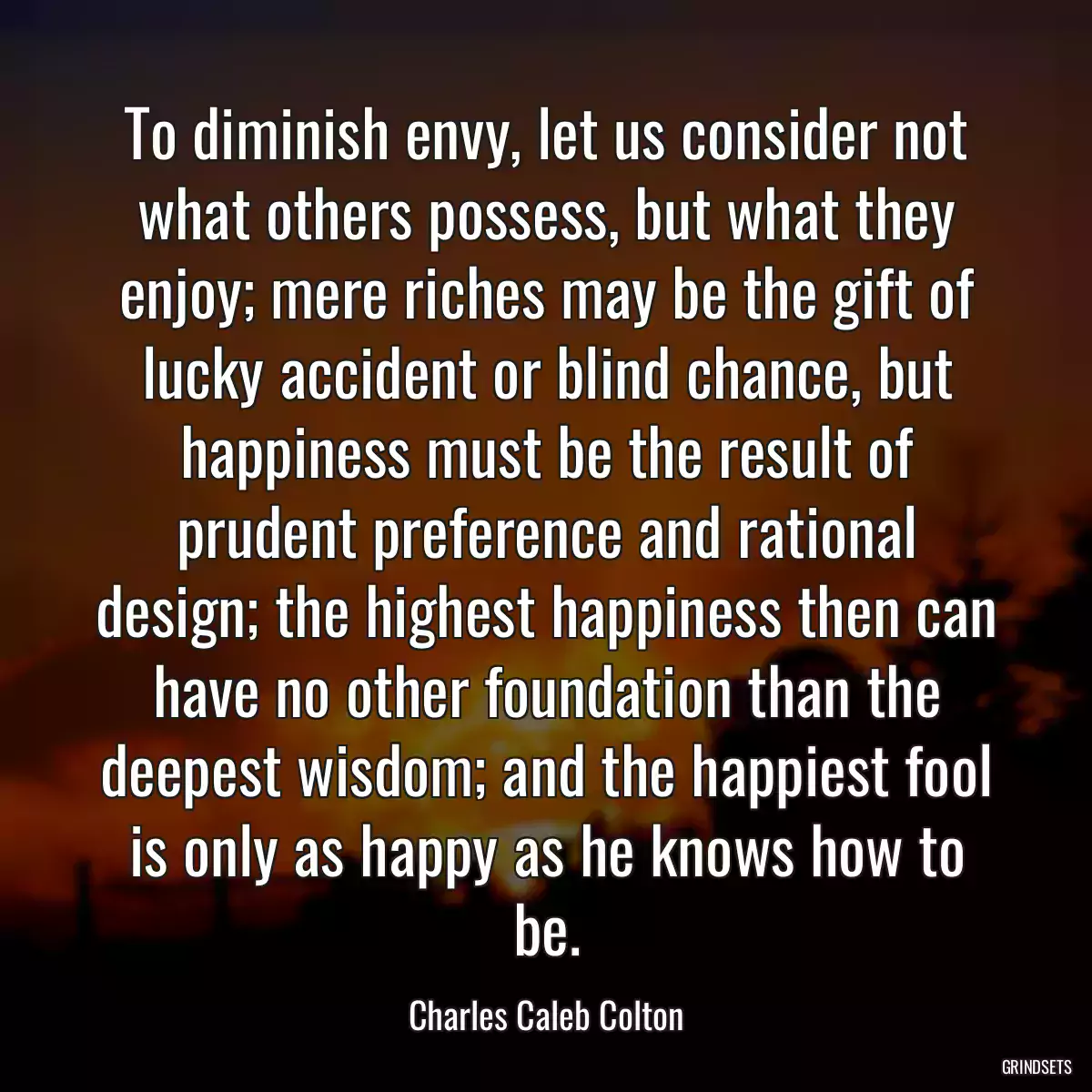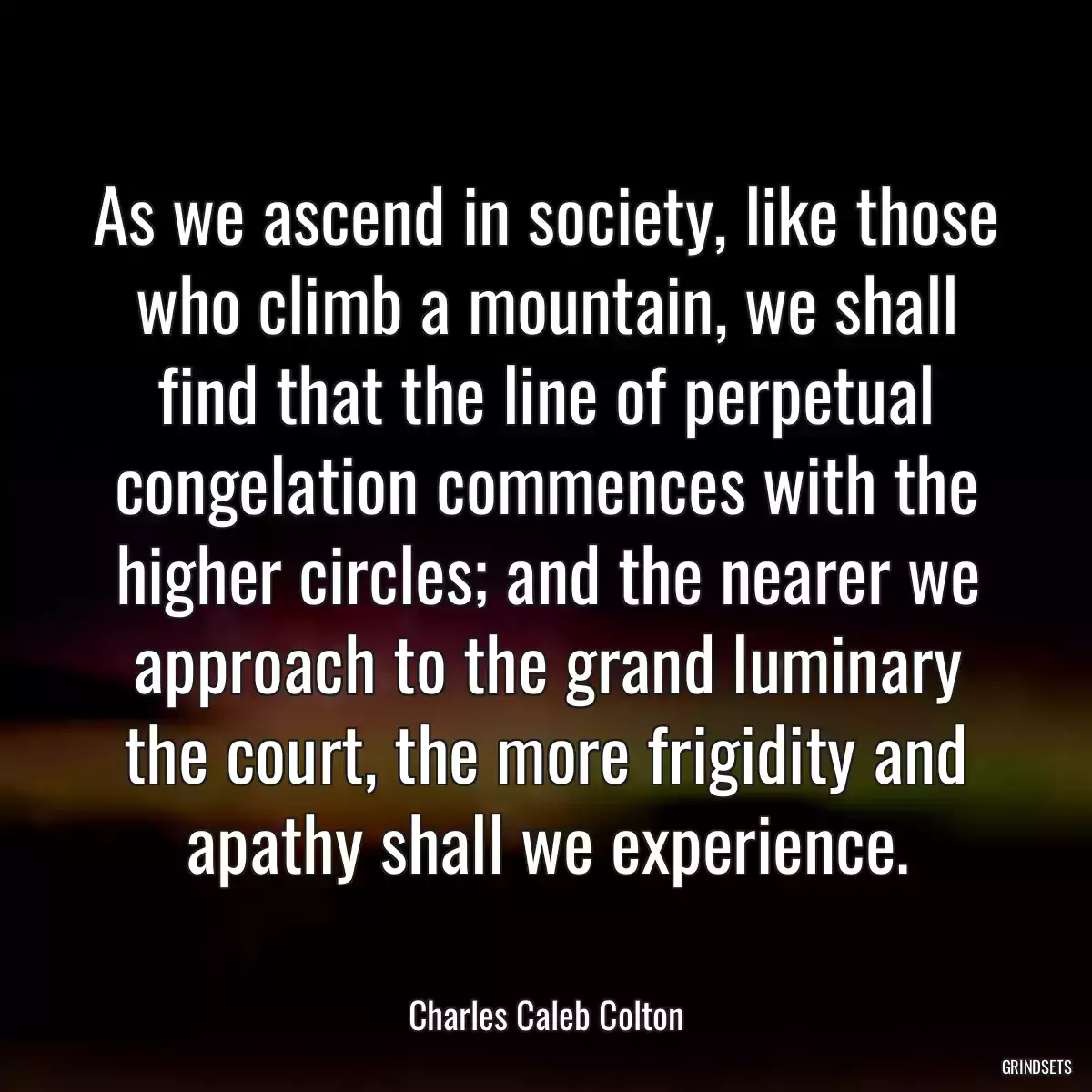
Quotes Charles Caleb Colton - page 2
Find dozens of Charles Caleb Colton with images to copy and share.

It has been shrewdly said, that when, men abuse us we should suspect ourselves, and when they praise us, them. It is a rare instance of virtue to despise which censure which we do not deserve; and still more rare to despise praise which we do.
Adroit observers will find that some who affect to dislike flattery, may yet be flattered indirectly, by a well seasoned abuse and ridicule of their rivals.
He that abuses his own profession will not patiently bear with any one else who does so. And this is one of our most subtle operations of self-love. For when we abuse our own profession, we tacitly except ourselves; but when another abuses it, we are far from being certain that this is the case.
You may also like
When certain persons abuse us, let us ask ourselves what description of characters it is that they admire; we shall often find this a very consolatory question.
Never join with your friend when he abuses his horse or his wife, unless the one is about to be sold, the other to be buried.
Idleness is the grand Pacific Ocean of life, and in that stagnant abyss the most salutary things produce no good, the most noxious no evil. Vice, indeed, abstractedly considered, may be, and often is engendered in idleness; but the moment it becomes efficiently vice, it must quit its cradle and cease to be idle.
The sceptic, when he plunges into the depths of infidelity, like the miser who leaps from the shipwreck, will find that the treasures which he bears about him will only sink him deeper in the abyss.
There are two principles of established acceptance in morals; first, that self-interest is the mainspring of all of our actions, and secondly, that utility is the test of their value.

To diminish envy, let us consider not what others possess, but what they enjoy; mere riches may be the gift of lucky accident or blind chance, but happiness must be the result of prudent preference and rational design; the highest happiness then can have no other foundation than the deepest wisdom; and the happiest fool is only as happy as he knows how to be.
It is a mortifying truth, and ought to teach the wisest of us humility, that many of the most valuable discoveries have been the result of chance rather than of contemplation, and of accident rather than of design.
It is easier to pretend to be what you are not than to hide what you really are; but he that can accomplish both has little to learn in hypocrisy.
Philosophy is a goddess, whose head indeed is in heaven, but whose feet are upon earth; she attempts more than she accomplishes, and promises more than she performs.
The greatest miracle that the Almighty could perform would be to make a bad man happy, even in heaven; he must unparadise that blessed place to accomplish it. In its primary signification, all vice--that is, all excess--brings its own punishment even here.
Neither can we admit that definition of genius that some would propose--"a power to accomplish all that we undertake;" for we might multiply examples to prove that this definition of genius contains more than the thing defined. Cicero failed in poetry, Pope in painting, Addison in oratory; yet it would be harsh to deny genius to these men.
Calumny crosses oceans, scales mountains and traverses deserts, with greater ease than the Scythian Abaris, and like him, rides upon a poisoned arrow.
The blindness of bigotry, the madness of ambition, and the miscalculations of diplomacy seek their victims principally amongst the innocent and the unoffending. The cottage is sure to suffer for every error of the court, the cabinet, or the camp. When error sits in the seat of power and of authority, and is generated in high places, it may be compared to that torrent which originates indeed in the mountain, but commits its devastation in the vale.
If kings would only determine not to extend their dominions until they had filled them with happiness, they would find the smallest territories too large, but the longest life too short for the full accomplishment of so grand and so noble an ambition.
You may also like

There are many who say more than the truth on some occasions, and balance the account with their consciences by saying less than the truth on others. But the fact is that they are in both instances as fraudulant as he would be that exacted more than his due from his debtors, and paid less than their due to his creditors.